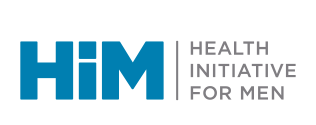Other Questions You Might Have
This information is developing, so we encourage you to check it again periodically for updates.
What About DoxyPrEP?
PrEP stands for ‘Pre-Exposure Prophylaxis’, a treatment taken before (‘Pre’) a possible exposure, and so DoxyPrEP refers to taking doxycycline before we have sex, as a daily pill. Most of the research conducted so far has focused on DoxyPEP, not PrEP, and so we still lack the specific data on its effectiveness and how to best take it. There are several studies on DoxyPrEP that are almost done or will soon be published, and as more solid guidance emerges HIM will be there to share that with our communities.
Are DoxyPEP/PrEP and HIV PEP/PrEP the Same Thing?
No. While they use the same acronyms of PEP and PrEP they are distinct treatments. Until recently, the only sexual health treatments referred to as PEP and PrEP have been HIV PEP and PrEP, treatments that are highly effective at preventing HIV transmission. Yet, while HIV PrEP and PEP are very effective at preventing HIV transmission they offer zero protection against any other STI. Doxy PrEP and PEP are still being studied, but while they appear to be highly effective at preventing certain bacterial STIs they provide zero direct protection against HIV. These treatments can be taken together to protect against both HIV and certain bacterial STIs, but one doesn’t offer the same kind of protection as the other!
Could Widespread Use of DoxyPEP Result in Greater Antibiotic Resistance?
One of the greatest remaining concerns about DoxyPEP is whether it could lead to increased resistance to doxycycline as treatment. While a possibility, the most harmful ways it could happen are not considered likely. Doxycycline is a primary treatment for both chlamydia and syphilis, neither of which have shown any evidence of developing resistance, and because of how those bacteria develop resistance it is not considered likely. Gonorrhea already has a high level of resistance to doxycycline, ranging from 25-70% across the world. For that reason, it is not used as a primary treatment for gonorrhea, and so increased resistance to doxycycline is not an immediate problem.
We should also remember that doxycycline and other drugs of its class are already used as long-term treatments, ranging from weeks to months, to prevent malaria and Lyme disease and to treat acne, as well as for the treatment of the surging number of cases of chlamydia and syphilis. If there were good enough uptake of DoxyPEP to reduce the population levels of the STIs it helps to prevent it might lead to less doxycycline being consumed overall, due to the lower number of infections needing treatment.
There are also questions around other bacteria developing resistance to doxycycline, including ‘commensal’ bacteria, those that naturally live on and inside of the human body, which could lead to transmitting the resistance they develop. Resistance in all of these bacteria is a topic that research to date has noted and that ongoing research continues to investigate.
